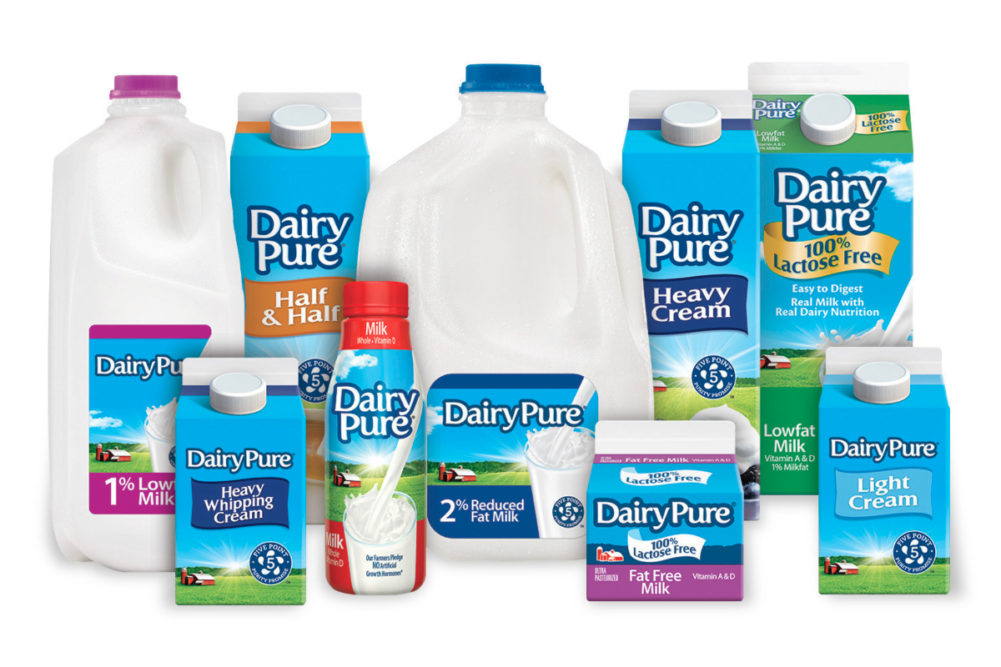DALLAS — Dean Foods Co. has a new chief executive officer and cost productivity plans to combat negative trends in the dairy category, but the company on Aug. 6 still reported a second-quarter loss, which was followed by a 37% one-day drop in share price.
A loss of $64.5 million in the quarter ended June 30 compared with a loss of $40.1 million in the second quarter of the previous year. Second-quarter net sales of $1,843.5 million were down 5% from $1,951.2 million. Dean Foods’ stock on the New York Stock Exchange on Aug. 6 closed at $1.06 per share, which compared with $1.67 per share at the close of Aug. 5 and a 52-week high of $9.75 per share. By Aug. 13, Dean shares dipped beneath $1 per share.
“In the second quarter, total Dean Foods volume was down significantly year-over-year, reflecting ongoing volume pressure, coupled with the overlap of certain customers exiting our system last year,” said Jody L. Macedonio, chief financial officer and executive vice-president, in an Aug. 6 earnings call. “The volume decrease reflects an accelerated fluid milk category decline. The category is currently undergoing significant changes as consumers have more food and beverage options to choose from than ever before. This leads to a dynamic retail and competitive landscape that we believe will continue to evolve. In recent years, the overall category has declined about 2% annually, and in Q2, we saw an acceleration of this trend.”
Dean Foods in February initiated a strategic review to explore options such as a merger, joint venture, sale or disposal of assets.
“We are conducting a thorough and comprehensive review of opportunities to create value for Dean Foods, our shareholders, our company and other stakeholders,” Ms. Macedonio said. “That said, as previously stated, we have not set a timetable for concluding the review.”
Eric Beringause took over as president and c.e.o., effective July 29, for Ralph Scozzafava.
“While Dean Foods has a strong foundation of assets and brands, it’s clear to me that we need to take a fresh look at the business and make changes that will allow us to succeed in today’s competitive environment,” Mr. Beringause said in the Aug. 6 call. “It’s no secret that our industry environment continues to present challenges to our business, and we must look for opportunities to accelerate our transformation to position Dean Foods to win.”
The dairy category continues to be pressured by low retail price points on private label milk, and at the same time, accelerated dairy commodity inflation is putting additional pressure on margins, Ms. Macedonio said. Class 1 raw milk costs were up about 12% versus a year ago and up 6% versus the first quarter, Ms. Macedonio said.
“We are now projecting Class I raw milk cost inflation in Q3 to increase 19% versus prior year, significantly higher than we originally anticipated,” she said. “Earlier in the year, we implemented net pricing actions to help offset some of this inflation. Moving forward, we’ll continue to explore other initiatives, including product mix opportunities, to further mitigate inflationary pressure.”
She said retailer private label margin over milk, which is a metric that looks at the average retail price of private label milk versus the per-gallon Class 1 cost of milk, contracted in June to $1.26, a historic low.
“As retailers continue to fund pricing promotions to drive traffic into their stores, they’re draining their own profitability,” Ms. Macedonio said. “As a result, we believe these margins are unsustainable and expect it to alleviate over time. Importantly, we believe this makes our brands even more important to the profit pool of our customers. Keep in mind, any change in raw milk costs will predominantly impact our branded business.”
Ms. Macedonio reported progress on cost productivity efforts.
“We’ve seen benefit from being able to get better returns on our trade promotions,” she said. “We have seen benefits from our procurement initiatives. We have made tremendous progress on our plant consolidation and to return to performance levels pre-consolidation.”
Dean Foods’ total net debt on June 30 was about $968 million. Dean Foods at the end of June increased its borrowing base availability to $265 million under its senior secured revolving credit facility, Ms. Macedonio said.
“This expansion increases our financial flexibility and further enhances our liquidity,” she said. “In addition, our existing $450 million accounts receivable securitization facility provides us with another source of flexible, low-cost access to capital. Together, these facilities provide us with the resources to continue to execute our priorities as we take meaningful actions to drive our plan forward and transform our company. As of June 30, we reduced our revolver borrowings to $286 million, a $27 million reduction from Q1.”
Over the six-month period ended June 30, Dean Foods sustained a loss of $126 million, which compared with a loss of $40.4 million in the same time of the previous year. Six-month net sales of $3,638.9 million were down 7% from $3,931.7 million.





